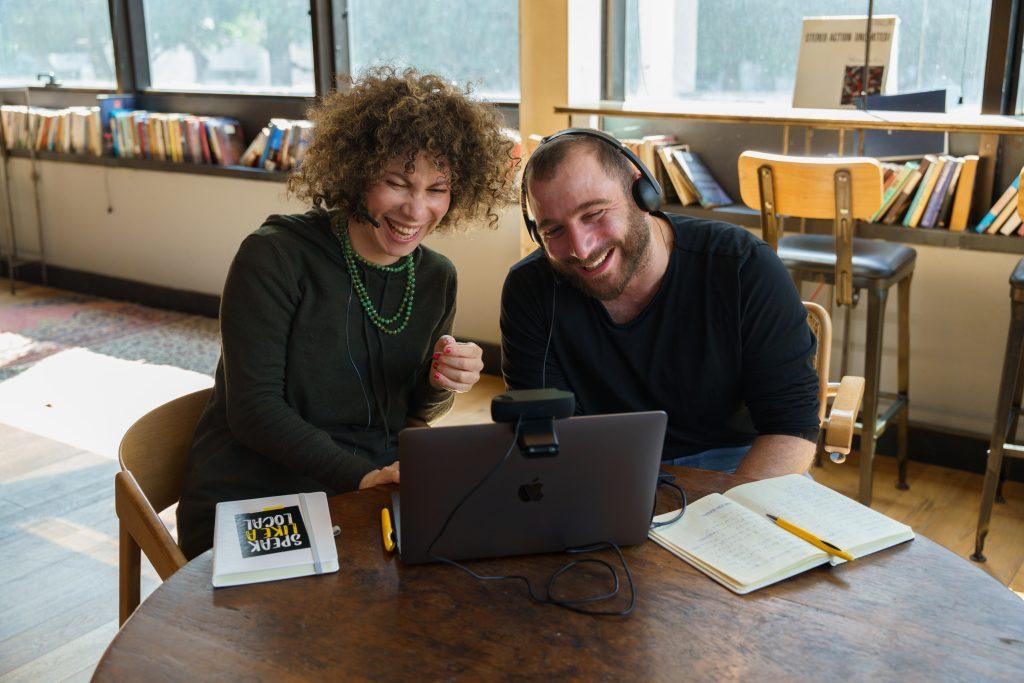Israel’s “Independence Day” יום העצמאות (yohm hah-ahts-mah-oot) is celebrated each year on the 5th of Iyar (Hebrew calendar), a day after the national “Memorial Day” for the fallen soldiers of the wars of Israel and victims of actions of terrorism יום הזיכרון (yohm hah-zee-kah-rohn). The proximity of these days is deliberate: its purpose is to remind the people of Israel of the heavy price that was paid for independence. Most of the citizens of Israel served in the IDF (Israel Defense Forces) צה”ל (tsah-hahl) and know at least one person who lost their life during service. Therefore, “Yom Hazikaron” is not just a national memorial day – it has a personal significance for most of us. This year, the shift from commemoration to celebration is especially difficult due to the ongoing war and the absence of our hostages.
Coming Together in Tough Times
But in Israel, adversity usually brings out the best in people. Alongside the hard bitterness of our existence here, there is also sweetness. Over the past few months, Israelis have gone out of their way to help each other. Thousands of agriculturists חקלאים (chahk-lah-eem) from the north and south of Israel were evacuated from their homes at the beginning of the war מלחמה(meel-chah-mah), and their fields were left unattended. Tons of crops would have gone to waste, but thousands of students (from high schools to universities) volunteered to help with fruit picking and harvest and salvaged these crops. In big cities such as Tel Aviv and Jerusalem, civil organizations initiated organized sales of produce from these towns יישובים (yee-shoo-veem), extending the chain of support.
A Swift Response to Chaos
In the first days of the war, everything was chaotic. Some military bases lacked food and equipment ציוד (tsee-yood) due to the overwhelming number of men and women who arrived at their reserve units before they were even summoned. Evacuated families were waiting for vouchers that would allow them to stay in hotels and apartments in the center of Israel. Within days, Facebook groups and Whatsapp groups were opened in order to help organize all the volunteers מתנדבים (meet-nahd-veem) who were just aching to do something. Restaurants closed their gates to visitors and reopened as “food factories” – with hundreds of volunteers cooking, packing, and shipping boxes of food portions all across the country. Private drivers transported equipment, clothing, and hygiene products to wherever necessary. Teachers, social workers, counselors, psychologists, hairdressers, cosmeticians, comedians, and many other professionals moved between the evacuated communities, offering their services for free.
Grief and Celebration Intertwined
Grief and celebration have always been intertwined in this country’s story. It is the story of the people who sacrificed their lives for the safety of their friends and family, and their communities who carry on their legacies. It’s a sad story, and I wish it were different. But despite everything we’ve gone through, people in Israel have shown how resilient they are and how far they’re willing to go for others – people they don’t even know. And if we follow this path and extend our kindness even further, there’s still hope for a better future. We extend our heartfelt condolences to all of the families who have lost their loved ones and pray for peace.









